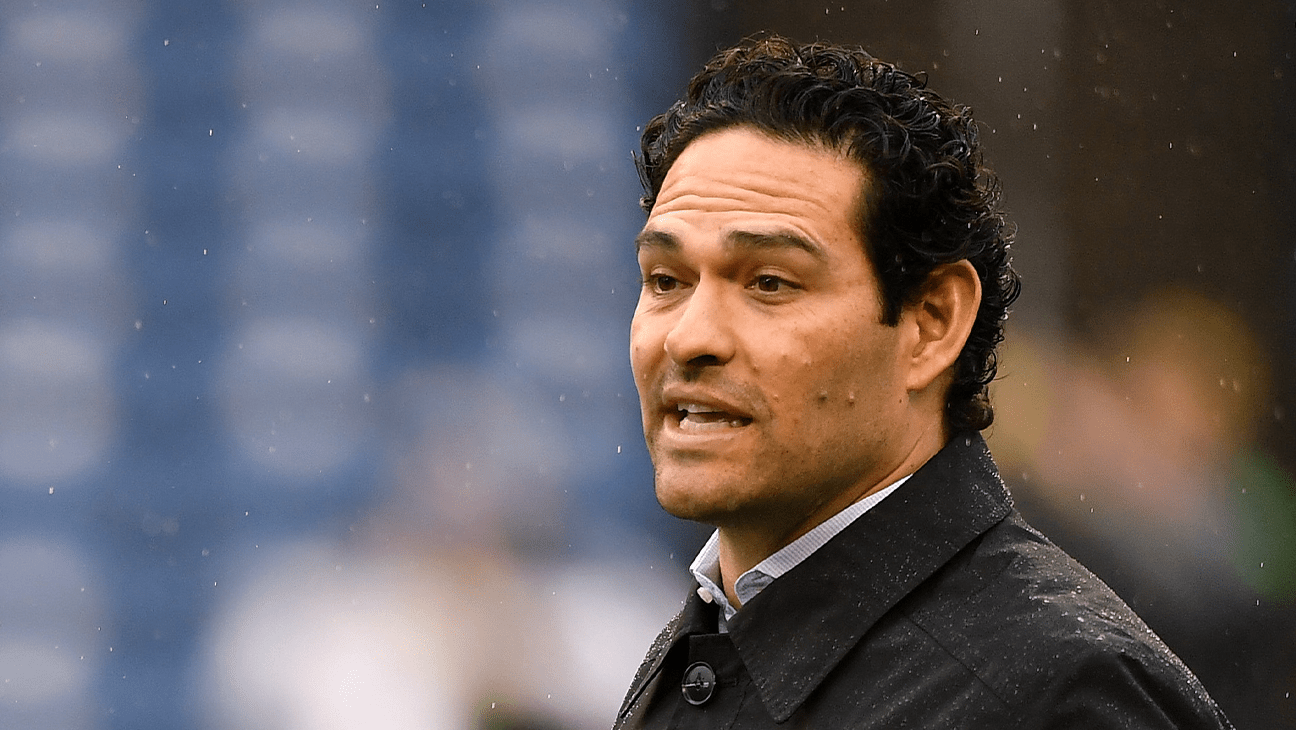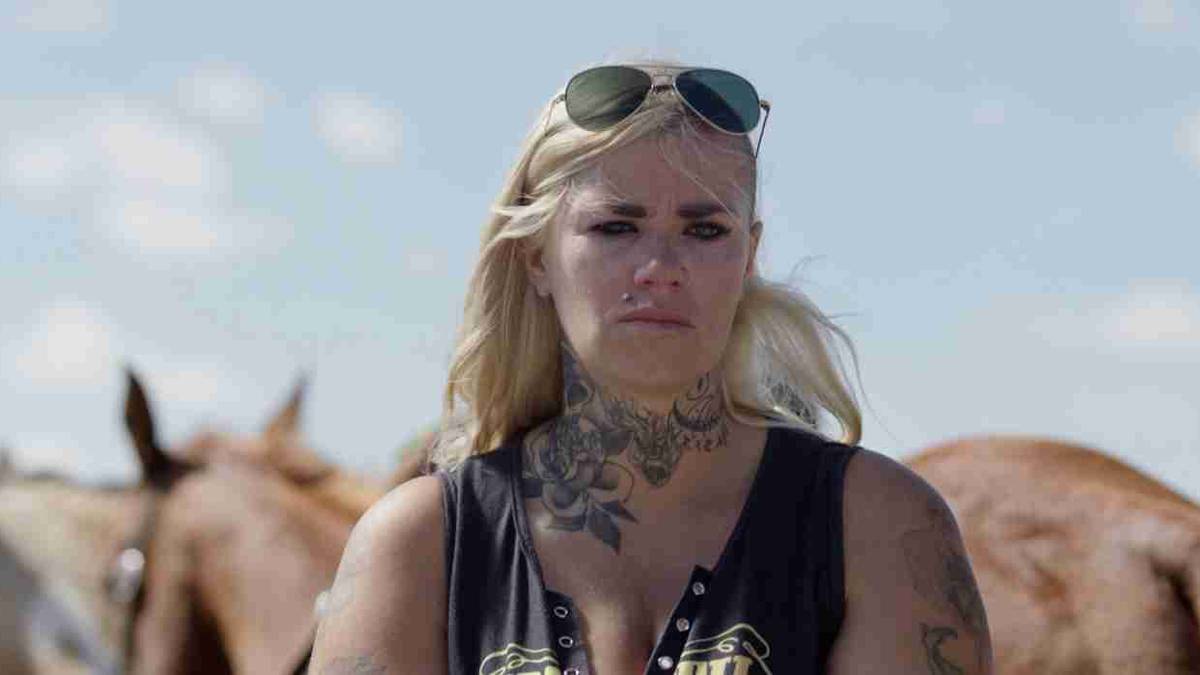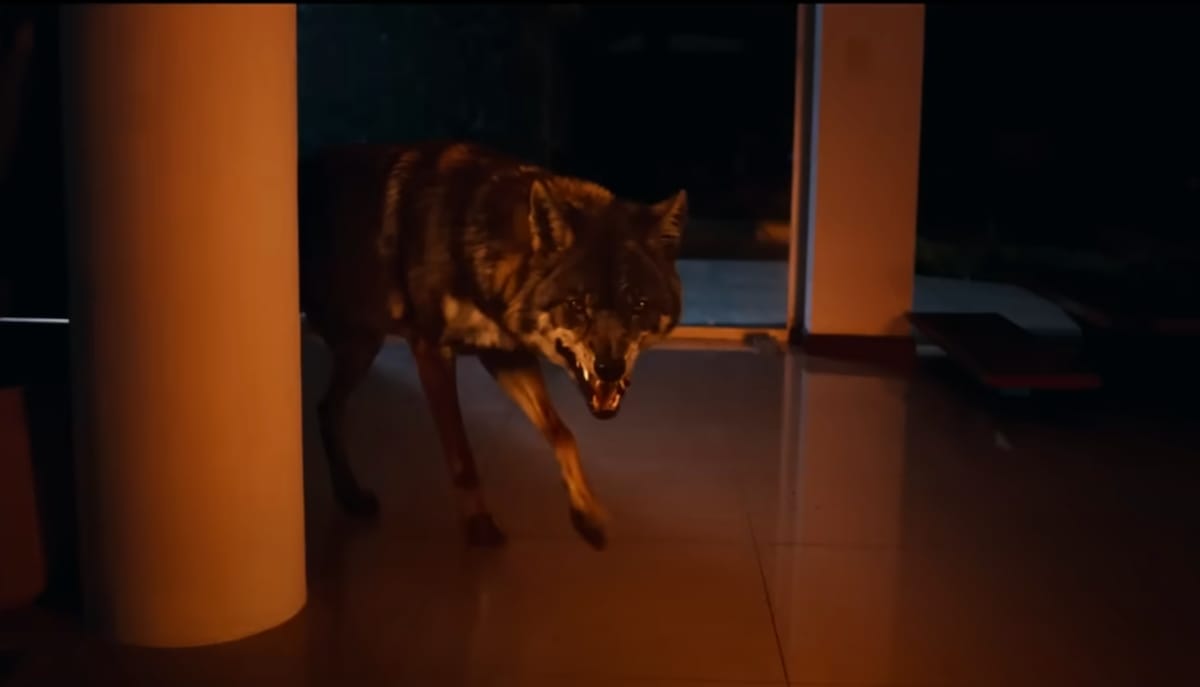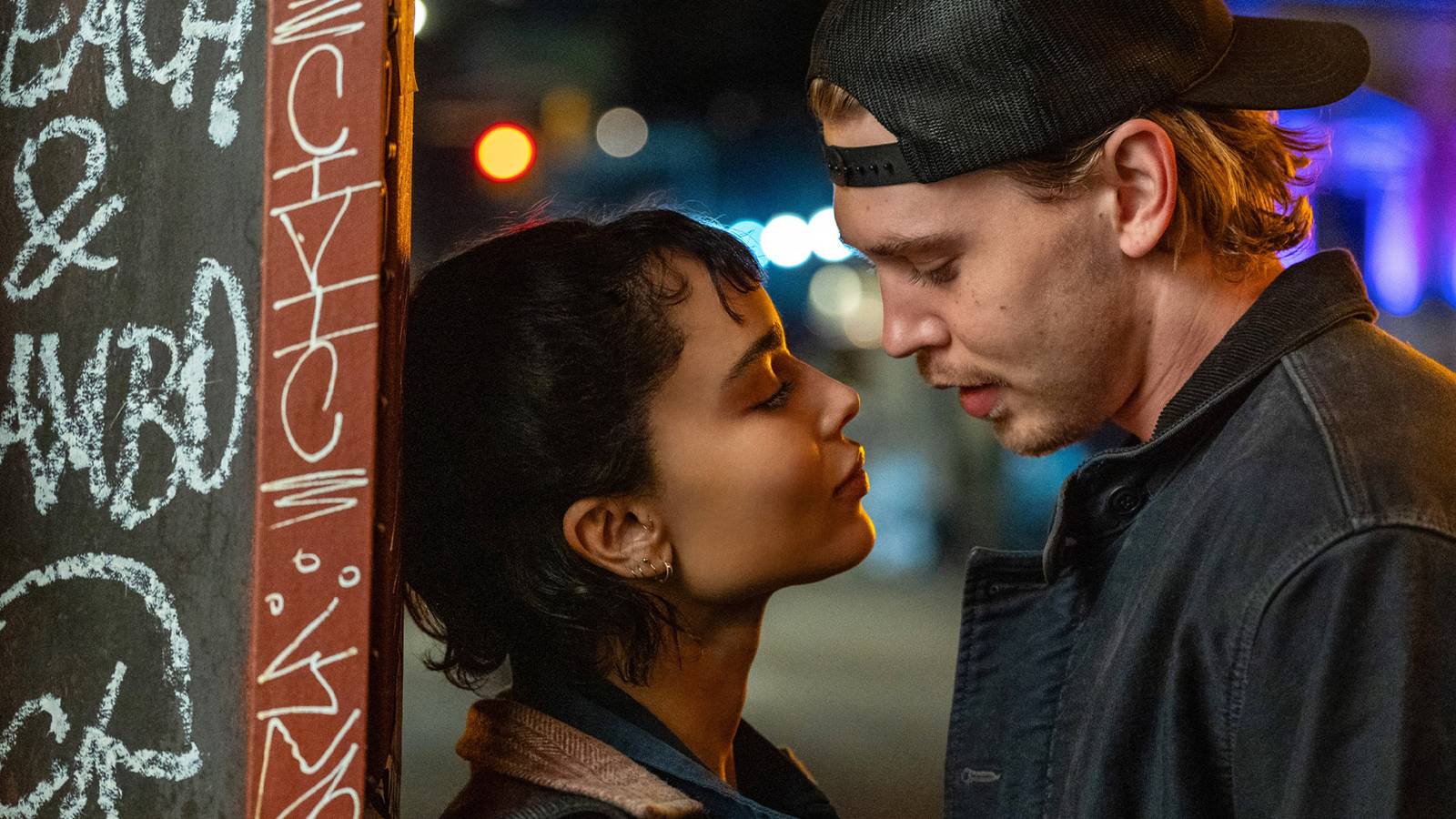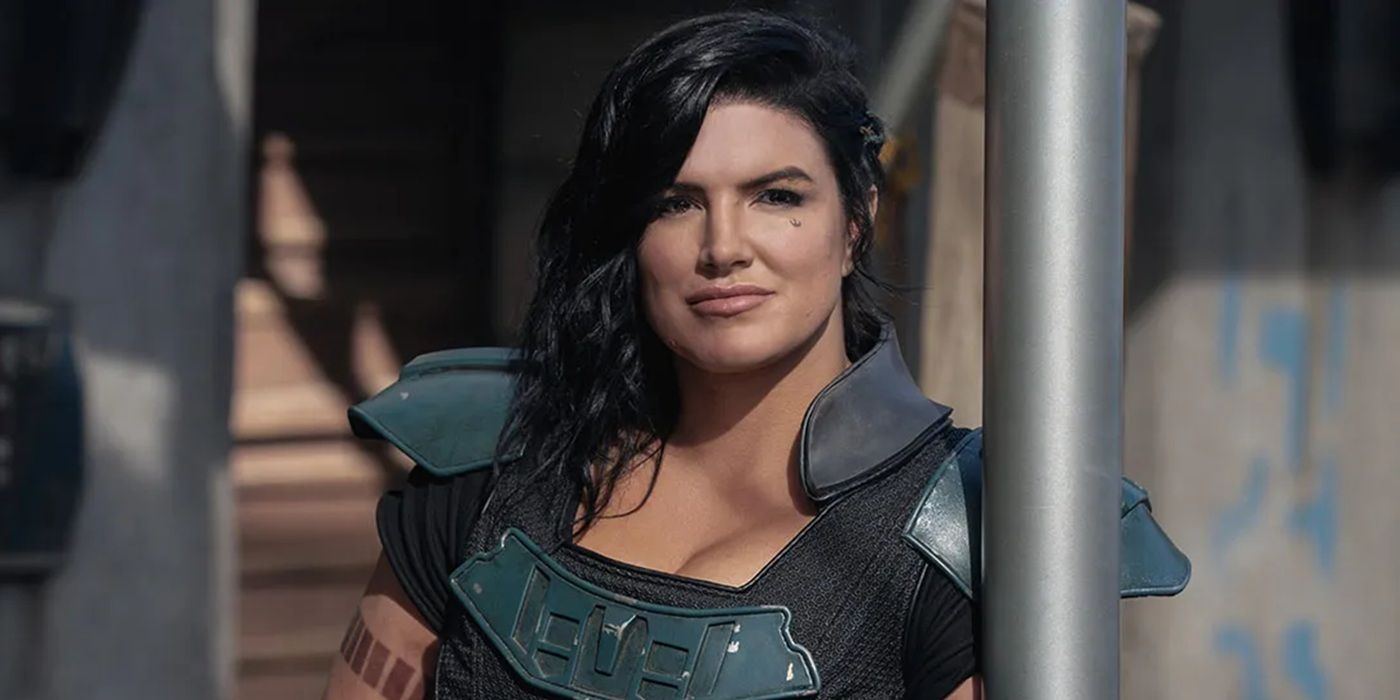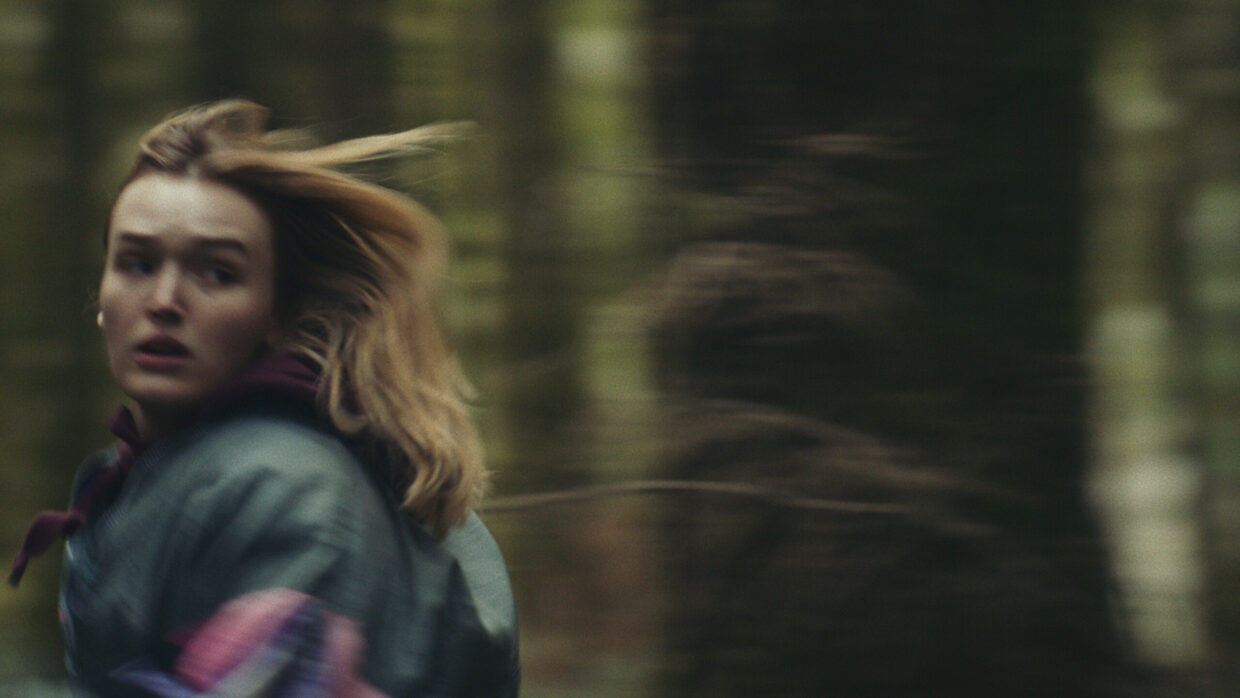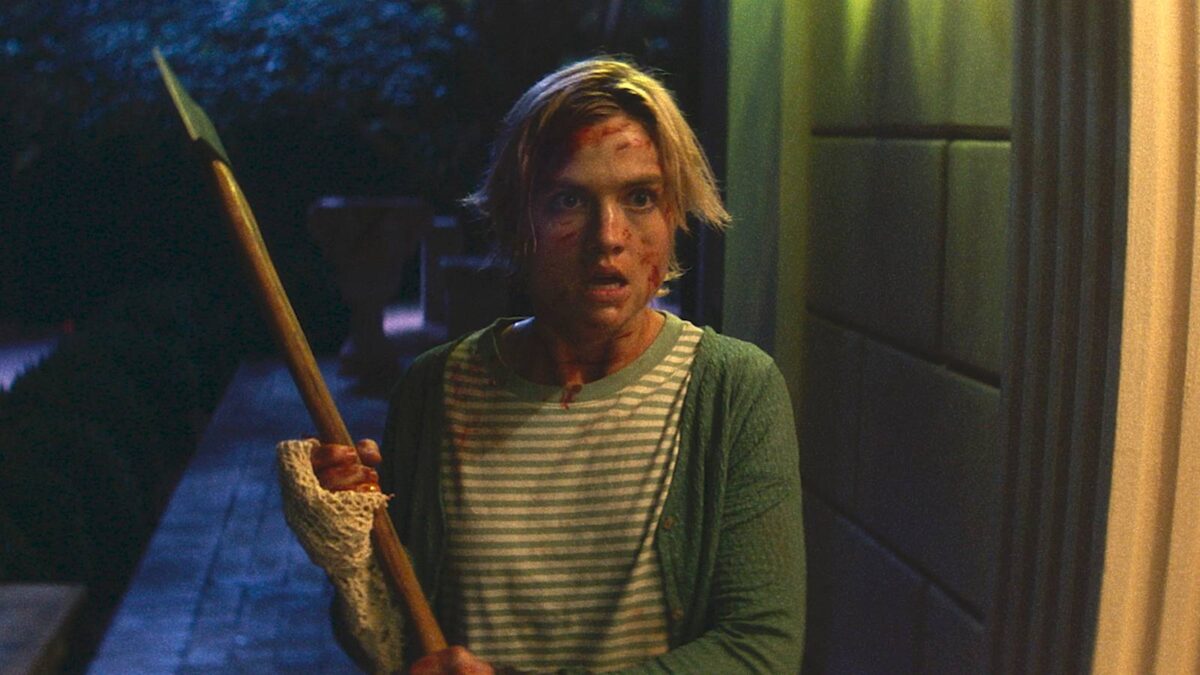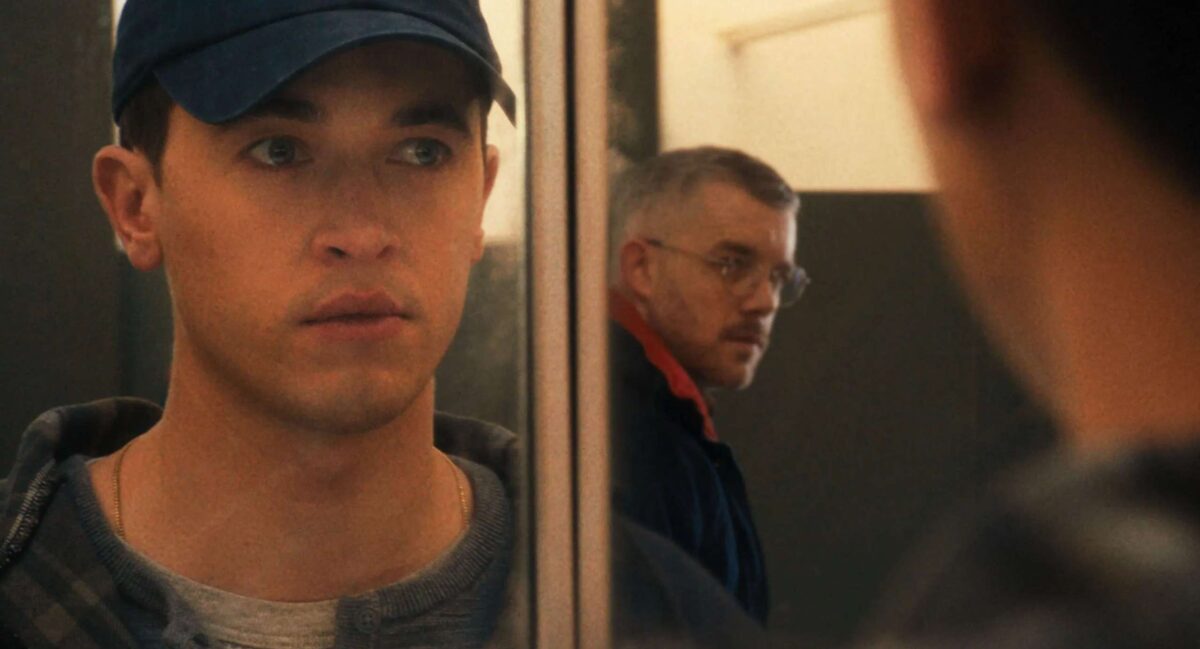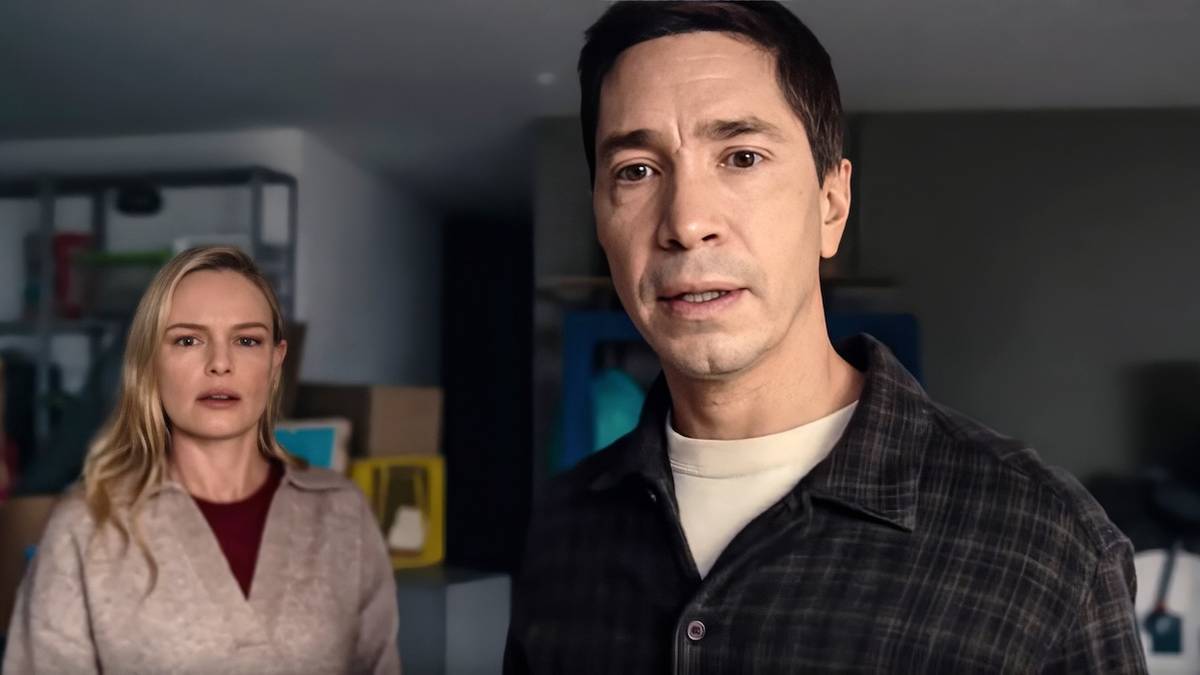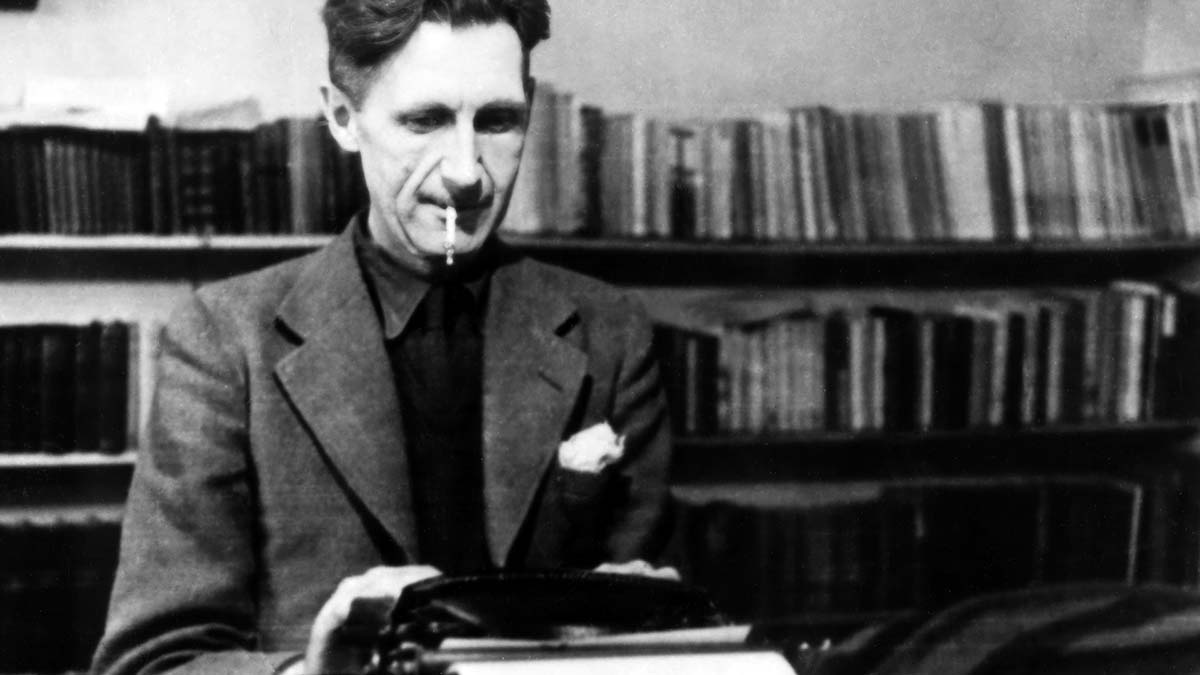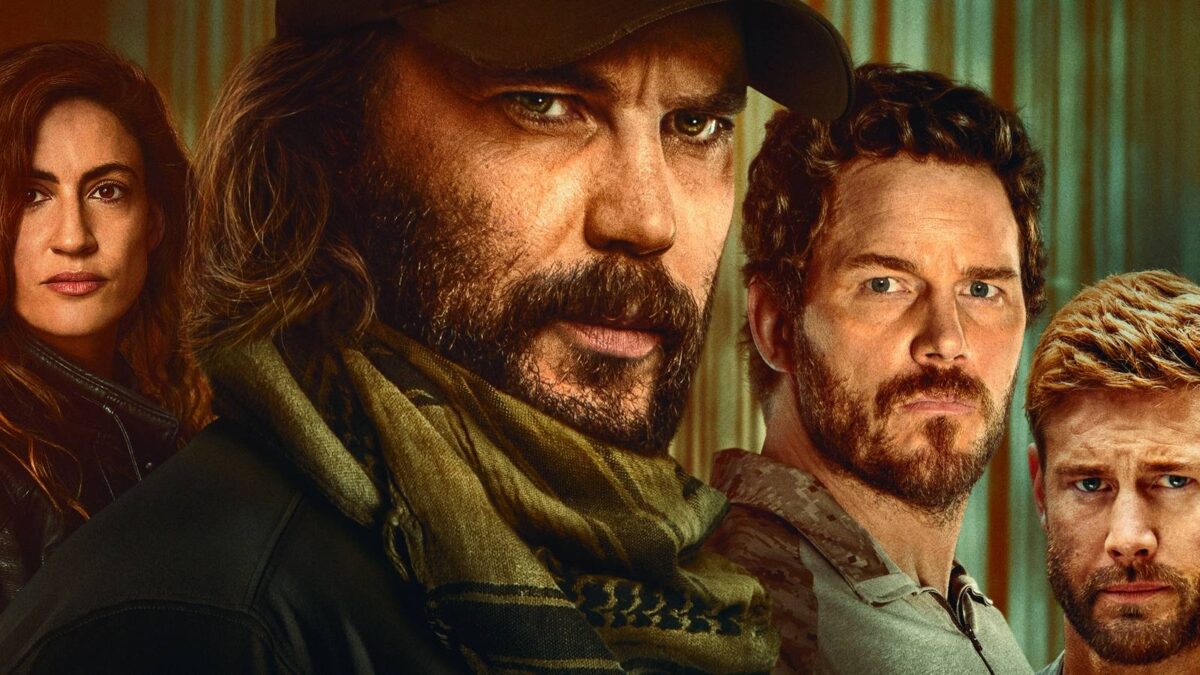
“We Link the Shows Thematically”
Sep 25, 2025
[Editor’s note: The following contains major spoilers for The Terminal List: Dark Wolf.]
Summary
‘The Terminal List: Dark Wolf” is a prequel series that explores Ben Edwards’ descent into CIA black‑ops and moral darkness.
Team-driven authenticity is of the utmost importance, with military advisors keeping an eye on weapons, tactics and the franchise’s gritty, consequential violence.
The flagship series ‘The Terminal List’ and ‘The Terminal List: Dark Wolf’ are linked thematically and you should keep an eye out for Easter eggs.
From co-creators Jack Carr, the best-selling author of The Terminal List, and David DiGilio, who also serves as the showrunner, The Terminal List: Dark Wolf is a prequel series that tells the origin story of Ben Edwards (Taylor Kitsch) and the toll it can take when you dive deeper into clandestine operations and the darker side of warfare. Viewers first met Edwards in The Terminal List flagship series, which focused on James Reece (Chris Pratt) as he investigated why his platoon was ambushed during a high-stakes mission, and his story will continue in the second season of that series. But while Reece seeks justice for his loved ones, the human cost is weighing on Edwards in a way that blurs the lines that should never be crossed. Collider recently got to chat one-on-one with DiGilio about all things The Terminal List and the plan for both series in the overall Jack Carr cinematic universe. During the interview, he discussed what they learned from making the first season of the flagship series, the importance of authenticity in both series, why they don’t have an official relationship with the Department of Defense, pulling off the big action sequences on a TV schedule, the car explosion that takes the life of one of the team and how that comes full circle by the end of the season, and the improvised moment between Ben and Raife (Tom Hopper). He also teased what fans can expect from Season 2 of The Terminal List and which book they’re focusing on, as well as how many seasons he hopes to do of The Terminal List: Dark Wolf.
‘The Terminal List: Dark Wolf’ Showrunner David DiGilio Points Out the Lessons Learned on the Flagship Series
“We take so much pride and put so much work into getting it right.”
Taylor Kitsch as Ben Edwards sitting next to Chris Pratt as James Reece in The Terminal List: Dark WolfPrime Video
Collider: Chris Pratt has said that he feels this season is better than the first season of the original series and that the first season was very much a learning experience, which it is with every show. What did you learn from making that first season? What do you feel the first season did best, and how did you want to use that to shape and build what this would be? DAVID DiGILIO: That’s a great question. Some of the lessons that we learned from Season 1 especially had to do with just the value of authenticity as a foundational element of the Jack Carr cinematic universe. We take so much pride and put so much work, as storytellers, into getting it right. I saw in Season 1 that Jared Shaw, who’s a former Navy SEAL and also an actor who plays Boozer on the show, brought so much to the table in his role as technical advisor and co-producer. I immediately advocated for him to become an executive producer, as did Chris and the rest of the EP team. I saw the amazing writing and incredible natural storytelling instincts of Max Adams, who is a former Army Ranger. I believe he started as our executive story editor on Season 1, and then finished as a producer, and he has a long history on the feature side of screenwriting. We promoted Max to executive producer for Dark Wolf as well. The value of great storytelling instincts and the ability to get it right that comes from our military storytelling EPs was one of the biggest lessons I saw in Season 1 and really wanted to make sure that they were empowered to have an even bigger role on Dark Wolf. Maybe the second lesson that we learned is that cine-vision is really hard. Trying to make a movie on a TV schedule and budget is extremely difficult, so we brought on our co-executive producer, Nicholas Stern, who is the line producer on Dark Wolf, one month into the writers’ room so that we could work the production angle of set pieces from the early creative stages. We refer to our way of making television as team television. We realized that we really wanted to build out the team and focus on things like authenticity and get that right, and making sure that we can achieve what we set out to achieve. The authenticity is definitely what’s so impressive about this. DiGILIO: Thank you. And full credit to Jack Carr, our author, our godfather, co-creator of the show. He really set that tone with the books. It’s the thing that made him stand out. Every weapon was a character, every vehicle was a character, every choice that was made, was made with the operator mindset in mind. We realized, as we were building out the show, that we needed to make sure those who know are empowered to make sure the correct choice is achieved. I know what I don’t know. I’m a civilian lover of military and espionage thrillers, but I have not lived this experience. We’re in the golden age of authenticity and representation, and I think the military experience deserves to be represented right on the screen. For me, maybe one of the best analogies is, if you’re a basketball player and you watch a sports movie, and you can tell that the actor cannot do a crossover or pull-up jump shot to save their lives, but they’re just going along with it, that pull every person who’s actually played that sport out of the movie immediately. For our military audience, all those little things that actors and storytellers from Hollywood have gotten wrong in the midst of the action that pulls them out, so we take such care to get those details right. I think it really helps set, not just Jack’s books, but now the shows, apart. It’s different if you’re doing a comedy and you just want the audience to enjoy it. But with something like this, where you’re taking it seriously, you want to make sure it feels as real as possible. DiGILIO: Yeah. We have what we call naturalism. It’s not necessarily realism, but naturalism. That idea and ethos is such that you believe the moment and the experience that the characters are in. If you can do that with these heightened, character-driven espionage thrillers, then people are just sucked in more deeply and that allows the amazing performances of people like Taylor Kitsch to then really stand out because there’s no barrier of entry. I liken it to when I was younger watching ER and everything was so real about the environment of that story that you then got drawn even more deeply into the characters. You’re pulled back into the fabric of the experience, and then you get to know the characters who live that experience. Another great thing about Dark Wolf is these operators working in this heightened world, because that world feels real, you really start to just see them as human beings with their own flaws and their own superpowers. It’s all there, but because you’re not questioning the world of the story and you’re not questioning the world of these characters in Budapest or Vienna or wherever they are across the globe, you get drawn into the character conflict more deeply. If you had known that you were going to do the story of Dark Wolf from the beginning, would you have done it first and then done the first season after it or do you think this is the best way to tell the story? DiGILIO: I think it’s the best way to tell the story, but I think you could watch the story either way. I’m really curious to see the fan reaction of those who start in Dark Wolf and then go to The Terminal List Season 1. It will be a very different viewing experience, based on which order you watch the show’s story chronology versus distribution chronology. Either way, you have a character who has, in Season 1 of the flagship series of The Terminal List, an air of regret to him. Really, it was in the pilot on the boat when he looks down at the gun inscribed with LLTB and he says, “Man, I miss the teams.” It was from that moment that we wanted to tell that story. And then, it was Chris who really had the idea of doing it next up because he realized with the schedule that he was going to have a large break based on his movie schedule and he wanted to make sure the fans didn’t have to wait forever in between seasons. It’s been a long time already. And then, we pitched it to Taylor and Jack and everyone, and we were off to the races. In an ideal world, how many seasons would you like to be able to do in this world? Do you see this as something that is open-ended and ongoing, or do you have a set amount of seasons in mind? DiGILIO: Jack Carr is so prolific that he’s out ahead of us with seven books. We’re playing catch up. It takes a lot longer to make these seasons while he writes a book a year. It’s amazing. So, we have a lot of track laid for the flagship series. And then, for Dark Wolf, when we pitched it to Amazon, we made sure to let them know that we think Dark Wolf would be a three-season arc at the minimum. He really is a hero, and not a villain. I guess you could call him an anti-hero, but Ben is truly driven by heroic ideals. So, to be able to start him there and then get him to a place where he – spoiler alert – betrays the brotherhood, that’s a wonderful arc. That’s a tremendous arc.
The Series in the Jack Carr Cinematic Universe Will Be Linked Thematically
“We’re contantly mining from the books.”
How will you balance doing both shows? DiGILIO: One of the really cool secrets of the Jack Carr cinematic universe is that we’re constantly mining from the books. One thing that we saw is that by telling the story of Ben Edwards going into the world of black ops, into ground branch with the CIA, and the descent that he will have through that world, and when James Reece is presented with the same path, it’s not just him stepping into that world. It’s the cautionary tale of Ben Edwards. Will James Reece follow in the dark wolf’s footsteps, or will he be able to maintain the light wolf within? We link the shows thematically to that struggle between the light wolf and the dark wolf that’s really in all of us. That is probably the coolest way to think about the shows. They’re quite linked thematically. Do you just have to shoot every day of the year, in order to both shows? DiGILIO: We really have been. It’s been a tear. Last year was Budapest. This year has been South Africa, Toronto, and now Morocco. It’s been a very, very busy schedule. I love my dear family, and I miss them. I miss my dogs. I feel really fortunate, and the team feels really fortunate. It’s a tricky moment right now in the business, with the contraction that’s happening. We feel very, very blessed to have an incredible team, and not just the EPs, but the crew have been with us since 2021, filming Season 1. We have an awesome team with MRC and Amazon that are excited to watch this thing grow. What is a dream action set piece that you’d love to do on this show? Now that you know what you’re able to do on this show, do you want to go even bigger? DiGILIO: We do some massive stuff, and we do it on a TV schedule. We did something that involved multiple aerial stunts, vehicular stunts, and a gun battle in one week this season. It was truly next level work by our stunt team, led by Heidi and Renae Moneymaker. We have a dedicated safety officer on the show, Ryan Sirico, who keeps us all safe as we do this. Jared Shaw sits on top of the action and authenticity ladder for us. Max works really closely with them. We tackle huge stuff, so this will sound funny, but we don’t currently have a relationship with the DoD, the Defense Department. We’re a huge military show, but they turned down that relationship in Season 1. I would love to forge a partnership. Certainly, you have creative freedom if you’re operating solo, on your own as a franchise. But there are so many active and retired military who love these shows and I think it would be really cool to be able to film something either on a submarine or on an aircraft carrier. I just think being able to actually use the real military equipment would be cool. What kind of notes does Amazon give? How have they been to work with on this? Are you guys always on the same page? DiGILIO: When you disembowel someone with a Tomahawk in Season 1, that can be a little shocking for your network partners. When we said, “Hey, we’re going to bring this scene from the book into the show,” and Max Adams figured out a really amazing way to do it, there was real concern, obviously, because it’s a pretty nasty, violent thing to do. But what we said to them is something that holds true for both shows, for The Terminal List and for Dark Wolf, which is that we do violence with consequence. It’s very important that in this world of naturalism that’s grounded and authentic, it’s very important that the act of violence is not glorified, and that there is pain inflicted not just on the person who suffers, but the person who inflicts the pain. There’s a weight that comes from extreme actions and violence, and we let our characters live with that and explore that. Chris did an incredible job with that in Season 1. You could see his shoulders grow heavier as he bore the weight of his victims. And then, with Dark Wolf, Taylor Kitsch, who is having this incredible breakout year with American Primeval and Dark Wolf, has this moment at the end of the pilot. You have hints of it coming where you see a man who’s unable to contain that wolf inside of him, and that makes him utterly unpredictable. The cost of that violence for him really comes in relationships. That commitment that we made to being character-driven and to doing violence with consequence and executing on it in Season 1 gained a lot of trust from Amazon because they know we’re not doing violence for violence’s sake. By diving into the world of the black side of operations, you’re able to walk into a theater of storytelling where there are noble institutions, for sure, but there are people inside those institutions who will try to use them for their own purposes and who carry their own grudges. And so, when you have somebody like Ben Edwards, who is driven by ideals, ideals can be twisted. You can masquerade a lot of things under the guise of ideals. When you have somebody who wants that outlet that’s a positive outlet for something like the dark wolf, it becomes wish fulfillment, and the rules of engagement are flexible. That’s catnip for Ben Edwards. There’s an allure to the black side of operations that I don’t think he can say no to. Toward the end of episode four, you have this huge fight sequence. It’s a shootout that starts inside the vehicles and then moves throughout the streets, and you have all these people running in different directions while shooting. What were the biggest challenges in pulling off a sequence like that, that is so long and that keeps moving? DiGILIO: When we go into a season, we have set pieces from the books that we’re pulling from. With Dark Wolf, Jared, Max, Jack, and myself met up ahead of the room and we really brainstormed. Part of the brainstorming was, what are some set pieces we want to see? The notion of a convoy hit was really interesting to us, so we started building that out with our writers’ room. And then, to be honest, one of the hardest things in pulling something like that off is the location itself. We were over in Budapest, and in Hungary, you cannot find tunnels to film in. It’s an entire country without tunnels. It’s bizarre. We had a search that really went right up to the 11th hour. Our amazing director, Liz Friedlander, was so patient with us. The director is the one who has to storyboard it and really work with Jared and the action authenticity team. Thom Williams and Chris Romrell, who are our stunt coordinators, on Dark Wolf, were incredible as well. I don’t think we nailed down that location until two weeks ahead of time, and from that point on, it was all hands on deck. You end up with rehearsals that are not in the space because you can’t own the location. And the other thing that’s unique to our show is that we will write the set piece, but then once we get the location, Jared and Max and thee team will start to move through the location as actual real operators would move through the location, so what you write in a vacuum is not chiseled in stone. It has to be adaptable. We’ll rewrite the pages, build a sequence with the stunt team, shoot that, bring out our DP, our camera operator who’s been with us now for two seasons, and we pre-shoot the thing, and then stitch it together and go, “Okay, we think this is achievable,” or “We’re crazy.” Usually, it’s both. And then, by the time the shooting day comes, we’re ready to go and do it fast and do it safely. It’s all in the prep. That’s the key. But you need a location, in order to prep. Trying to pick out our locations sooner was the big lesson. You have the moment with the car explosion, and we just see a hand in a pool of blood. We don’t see Eliza’s body. How did you come to that decision, as far as what to show and what not to show? Was there more that was shot that got edited out? DiGILIO: A big component of cine-vision is that a lot of us started out in movies and then switched over into TV, so we’re constantly thinking with the filmmaker brain and working with our directors to think cinematically. The truth of the matter is that in movies, you can tell a lot with a little right. The frame is enormous, and people love to interpret and read into frames. When you have something horrible like that occurs, the key with our show is that it has to be experienced through what we call a subjective lens. It has to be in the character’s point of view. And so, in that moment, we let the audience see what Ben sees, and he doesn’t need to see more than what is shown to understand the scale of his loss. The same thing happened in Season 1 with Reece and the sicario. We lit it quite dark, and we kept things more suggestive than seen, and then we used flashback to put you in Reece’s head before he commits the act. For me and for our team, the notion of the subjective experience and storytelling is another thing that is essential and differentiates our show from more objective, big action shows. I always freak out with scenes where someone has to do their own wound care, and you did that with Ben Edwards after that car explosion. DiGILIO: We love the movie Ronin. There’s a great scene in Ronin with Robert De Niro getting treated after something has gone wrong. We love the notion of our heroes dealing with the consequences of their violence and having to get themselves out of that situation, but also repair themselves, physically, mentally, and emotionally. Sometimes it’s easier to repair yourself physically than emotionally. Hat tip to our heads of makeup, Brigette [Myre] and Kenny [Niederbaumer], who are incredible. They don’t just make our actors look amazing, they do all the special effects makeup, and they just crush it. My favorite kind of fight scene is when you’re in a space where you just have to grab whatever you can to try to defeat someone. The scene you have between Tal and the very large man just felt so real and so brutal. DiGILIO: We try, every season, to include a character who is a bit younger and who has a path ahead of them because a coming of age arc is quite universal. Shiraz [Tzarfati], who plays Tal, is our great discovery on the casting front. There was a global search to find, the actress for that role, and the moment we saw Shiraz, it was Chris who first called it out and was like, “There is a star in the making.” She showed up, and it was her first big job where she was playing with all these heavyweights, and she just crushed it. She was very excited because she knew the fight scene was coming. The thing about that fight scene is that it’s really a transformative moment for the character. It’s a character who is mainly in her head. She’s a more tech-driven character who longs to be like her idol, Eliza, a field agent. And out she goes into the field and it’s like, be careful what you wish for. A character who has relied on her smarts and wit throughout the season suddenly has to fight this monstrosity, Klaus, played by Ethan Suplee, who flew out to do that for us and did awesome work. We spent days on that fight. Paul Cameron, the director of that episode, worked closely with Max and the stunt team on that fight. It comes down to literally clamoring for anything you can get ahold of. It’s really memorable and it’s very real because she’s not beating this guy up. She is fighting for her life and doing it in a way that is ingrained in her character. She literally has to go from using jujitsu moves to using what she can find on the table. That makes it feel frightening because it feels so real.
That Big Solo Fight Scene for Ben Edwards in ‘The Terminal List: Dark Wolf’ Was Inspired by Bond
“Ben is always going to lose control.”
Taylor Kitsch laying on the ground and leaning on a car to shoot his gun in The Terminal List: Dark WolfPrime Video
You have this fight with Ben and all these people coming at him. How did you even tackle that, when it’s literally one person against so many people that you can’t even keep track? DiGILIO: That was a fun episode. I co-wrote that episode with Jack, and Jack is a big fan of Bond, so there might be a little Bond influence, in terms of the notion of people coming for Ben out in the wilderness. But then, you have to do it believably, so you bring in Max and Jared. We built that farmhouse in Budapest, and Jared went out to that farmhouse and took the pages and started walking the area thinking, “If I was Ben Edwards, how would I prepare for this inevitability?” That started opening up new ideas, like the roadside IED that he buries to take out the first group, the use of the various weapons platforms, the use of Claymore mines, and the notion of dwindling the forces down through a controlled battlefield. This is Ben, and Ben is always going to lose control, whether on his side or on the enemy’s side. He ends up in a fraught situation and only survives because of the power of the brotherhood. It was a great storytelling device to take the dark wolf, who becomes the lone wolf, and then put him in a situation where the notion of those who care about him really helps him get through. The other way you tackle something like that is that you make sure you have crazy good directors. Paul Cameron really crushed it for us on Dark Wolf, and he came back for Season 2 of the flagship and directed the first two episodes, which are awesome. In the second unit chair is Ray Mendoza, who is a former Navy SEAL turned storyteller and director. He started with us as a technical advisor in Season 1, and he went on to co-direct a wonderful film called Warfare with Alex Garland. Ray was available to shoot second unit for us on that finale sequence, and we jumped at the chance to have him get in the chair. And Ray is back in the chair for us on Season 2 of the flagship as well. The shootout that happens through the airplane was interesting because no one can really see who or what they’re shooting inside the plane. What were the challenges of shooting that? DiGILIO: That was an idea that that was in our very first set piece meeting. Episode six was co-written by Jared Shaw and Max Adams, who are the two guys that are in charge of our action authenticity, so you knew it was going to deliver something special on the action front. As we started building out this climactic sequence, we were really drawn to this notion of fish-in-a-barrel and that brutality. Poking the bear is one thing, but if you poke the dark wolf, that’s something different. The level of anger that erupts from Ben, and not just Ben but also Mo and Landry in that moment, you really see it on screen and it’s something to behold. There was excruciating heat out on that tarmac in the middle of summer, so kudos to the stunt team. We had stuntmen from something like five different countries working in that sequence, not just from Hungary, but from Spain, France, and the U.S. Coordinating that and making it look as good as it looked, with the special effects team making it look real from the outside, it was just awesome. That’s one of my favorite set pieces of the season. It starts so impersonally, in the sense that they’re shooting through the plane and don’t really know who or what they’re shooting, but it ends with such a personal moment, with chopping the guy’s hand off. There’s such an interesting balance between those two things. DiGILIO: From a character perspective, you try to build a set piece as you would build a dramatic scene. You need to have the tension that’s happening, not just in the action side, but in the emotional side. There is a directionality and an intentionality between Ben and what he is going to retrieve, and he will stop at nothing to make sure that item does not leave the tarmac. There’s a very cool little button on that, which is that Raife Hastings is also present in what’s referred to as the overwatch position. Ben and the guys might not know it, but he’s there. He’s there for his brothers. That was a really interesting beat because that was something that was not originally in the script, but to watch the special operator EPs really talk that out, you could tell it was really important to them that, even though Raife walks away, he doesn’t turn his back fully on his brothers. That’s a special moment. And you can really contrast a moment like that with the conversation that Raife and Ben have that really sums up so much of the series saying, “Some men will go to war to fight the enemy, others will seek war to fight themselves.” Ben says he’d rather go home in a body bag, and Raife tells him that he will. What did you think of how that moment played out, with how the actors handled that? DiGILIO: We really ascribe to the idea of team television. As writers, we know that we’re constantly thinking from the 30,000-foot level down to the 10,000-foot level. When you get to scenes like this, I think it’s very important to have rehearsals and to include actor feedback. That was a scene that Max and Jared had written. It’s a beautiful scene, but we made real discoveries as we got into the rehearsal process. It was a night shoot, so it was 300 people out all night in Budapest at the docks, filming this scene in the dead of night. We watched the guys performing it, and that last couplet was improvised that night. It was Taylor doing one of his classic, come-up-with-a-great-line moments with the body bag, and he threw it to Tom [Hopper], who walked away. And so, I said to Tom, in between takes, “Hey, man, you have to answer back. You can’t just walk away. It’s not strong enough. Just tell him that he will.” Because the truth is he will. We know that. For me, that just gave this epic ending that is the breakup scene for the season. That’s the thing with team television. The script is the guide, but what ultimately ends up [on screen] comes from everybody making discoveries in the process. I really appreciated the moment when Mo rides up on the motorcycle and leaves the bag with the bomb on top of Cyrus’ car. It’s a nice full circle moment. Did it feel particularly satisfying to be able to have a moment like that? DiGILIO: Yeah. We really love the tension between the individual and the institution that exists all over the world. We have characters who are embodiments of consequence. Cyrus is a very bad actor. Alain [Ali Washnevsky] is a great actor. Cyrus is a very bad actor in terms of the evil that he metes out during the season. This guy thinks that he’s smarter than everyone and that he can get away with it. And Mo is probably the steadiest hand of vengeance in the whole Jack horror universe. He is a guy who lost his family and really his country to great violence and is trying desperately to build it back. So, he really was the perfect character, and just every frame with Dar Salim is so captivating. It felt like the ultimate comeuppance to have Mo be the one who delivers Cyrus’ end. Losing that character was a particularly tough one because she was so great, so I appreciated that someone got vengeance for such a painful loss. DiGILIO: And really savvy fans will recognize that the song playing on the radio in the car when that moment happens at the end of episode five is also the song that is playing in Ben’s car when he arrives to pick up James Reece in San Diego in the pilot of Season 1 of The Terminal List. There’s a direct emotional tie between the loss that Ben suffers there and everything that happens in the Jack Carr universe.
Season 2 of ‘The Terminal List’ Flagship Series Will Be Based on the Book True Believer
“Book 2 is one of my favorite in the series.”
Chris Pratt as James Reece walking forward and looking determined in The Terminal ListPrime Video
What can you tease for Season 2 of The Terminal List? What is to come next? DiGILIO: Book 2, True Believer, is one of my favorite in the series because Jack very smartly realizes that if you take somebody down the vengeance path, you’re going to put them in an emotional and spiritual space that is very hard to come back from. The idea of a healing arc is fascinating when you’ve done the things that James Reece has done. It’s a story of violent redemption. It’s a story of healing. He heals through operating again and through getting pulled back into the world of espionage. We get to play with some very memorable characters who are going to be doing some very different things than you saw them do in Dark Wolf. Is the plan to have that come out next year, so that we’re not waiting as long? DiGILIO: That’s exactly right. As soon as the first season hit and Chris and myself and the EP team started talking to Amazon about what would be next, this plan was put forth to, in effect, pick up not just Season 2 of The Terminal List flagship, but to pick up Season 1 of the prequel. What that did was help us get into a cadence. Dark Wolf was released in August 2025, and then next summer 2026 will be The Terminal List Season 2, based on the book True Believer.
Release Date
August 27, 2025
Network
Prime Video
Directors
Fred Toye, Liz Friedlander
Writers
Max Adams
Franchise(s)
The Terminal List
The Terminal List: Dark Wolf is available to stream on Prime Video. Check out the trailer:
Publisher: Source link
Erotic Horror Is Long On Innuendo, Short On Climax As It Fails To Deliver On A Promising Premise
Picture this: you splurge on a stunning estate on AirBnB for a romantic weekend with your long-time partner, only for another couple to show up having done the same, on a different app. With the hosts not responding to messages…
Oct 8, 2025
Desire, Duty, and Deception Collide
Carmen Emmi’s Plainclothes is an evocative, bruising romantic thriller that takes place in the shadowy underbelly of 1990s New York, where personal identity collides with institutional control. More than just a story about police work, the film is a taut…
Oct 8, 2025
Real-Life Couple Justin Long and Kate Bosworth Have Tons of Fun in a Creature Feature That Plays It Too Safe
In 2022, Justin Long and Kate Bosworth teamed up for the horror comedy House of Darkness. A year later, the actors got married and are now parents, so it's fun to see them working together again for another outing in…
Oct 6, 2025
Raoul Peck’s Everything Bagel Documentary Puts Too Much In the Author’s Mouth [TIFF]
Everyone has their own George Orwell and tends to think everyone else gets him wrong. As such, making a sprawling quasi-biographical documentary like “Orwell: 2+2=5” is a brave effort bound to exasperate people across the political spectrum. Even so, Raoul…
Oct 6, 2025
